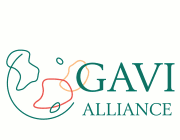|
COMPREHENSIVE IMMUNIZATION STRATEGY
CAN GREATLY REDUCE CHILD DEATHS FROM MEASLES
GAVI Board Endorses Plan and Calls for More Funds
NEW YORK/GENEVA, 7 January 2003 - Full implementation of a comprehensive measles immunization strategy could prevent an estimated 2.3 million child deaths in Africa this decade, markedly reducing the death toll from measles on the continent. WHO and UNICEF made this encouraging announcement at a recent board meeting of the Global Alliance for Vaccines and Immunization (GAVI).
Of all the vaccine-preventable diseases, measles remains the leading cause of death among children. Every year, measles affects over 30 million children and claims the lives of nearly 800,000 -- more than half of them in Africa. The new immunization strategy has been extremely effective in a block of seven southern African countries. Through this strategy Botswana, Lesotho, Malawi, Namibia, South Africa, Swaziland and Zimbabwe have reduced measles deaths to near zero since the year 2000.
"We have the opportunity to save well over 2 million young lives using a proven strategy," said Carol Bellamy, Executive Director of UNICEF and Chair of the GAVI board. "Measles immunizations have saved the lives of over 130,000 children in Africa this year. We must now build on this success and ensure that every child is adequately vaccinated and protected against measles."
The GAVI board endorsed the WHO/UNICEF comprehensive measles immunization strategy to achieve a sustainable reduction in measles deaths. This strategy provides children with two opportunities for measles immunization. The first opportunity is given at 9 months of age through the country's routine immunization delivery system, and a second through supplementary immunization campaigns conducted every 3-4 years to ensure that every child is reached.
"The child death toll from measles - a completely preventable disease - is unacceptable. GAVI's mandate is to increase children's access to vaccines, and measles vaccine is a proven life saver," said Dr Gro Harlem Brundtland, Director-General of the WHO and a GAVI board member. "But a comprehensive measles immunization strategy requires sustained funding. I encourage the GAVI partners to do their utmost to fund the full implementation of this important strategy."
WHO and UNICEF currently estimate that an additional US$ 200 million will be required to implement the comprehensive measles strategy. The funds would pay for the vaccines, safe injection materials, refrigeration equipment, transportation and personnel both to strengthen routine immunization activities and to conduct the supplementary measles immunization activities in the African region from 2003-2010.
"Reducing measles deaths on a long-term basis is an important part of the UN Millennium Development Goals and measles mortality reduction strategies form an integral part of countries' immunization plans which the Alliance promotes", said Dr Tore Godal, GAVI's Executive Secretary.
GAVI fully supports the UN goals related to measles prevention. These include the UN Special Session on Children resolution to reduce measles deaths by 50% by the year 2005, as well as the UN Millennium Development Goals, which include the target to reduce the under-five mortality rate by two thirds. The proportion of children immunized against measles by one year of age is a key indicator for measuring the achievement of these goals.
Reducing measles deaths in a sustainable manner is the objective of the Measles Initiative, a broad-based partnership co-ordinated by the American Red Cross and including the Centers for Disease Control and Prevention (CDC), the UN Foundation, UNICEF, WHO, the Canadian International Development Agency (CIDA), governments, civil society and the private sector. In 2001 and 2002, the Measles Initiative has delivered measles vaccine to over 70 million children in 16 African countries.
The Global Alliance for Vaccines and Immunization (GAVI) is a public-private partnership focused on increasing access to vaccines among children in poor countries. Partners include national governments, UNICEF, WHO, The World Bank, the Bill & Melinda Gates Foundation, the vaccine industry, public health institutions and NGOs. The Vaccine Fund is a new financing resource created to support the GAVI immunization goals, providing financial support directly to low-income countries to strengthen their immunization services and to purchase new and under-used vaccines.
For more on the measles initiative, see www.measlesinitiative.org.
For additional information, please contact:
Lisa Jacobs, GAVI Secretariat, Geneva, +41 22 909 5042, ljacobs@unicef.org
Mohammad Jalloh, UNICEF Media, New York, 212- 326-7516, mjalloh@unicef.org
Sara Cameron, UNICEF, New York, 212-824-6565, scameron@unicef.org
Susan Mackay, WHO information officer, Geneva, + 41 22 791 4964, mackays@who.int |
